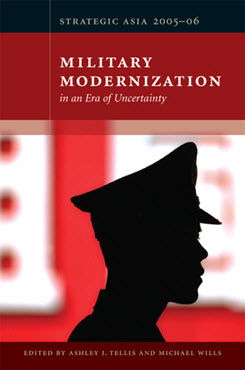Prospects for Nuclear Proliferation in Asia
This paper analyzes the current security climate in Asia with regard to nuclear weapons, incentives for their acquisition, and different contingencies that may prompt nuclear proliferation.
EXECUTIVE SUMMARY
This paper analyzes the current security climate in Asia with regard to nuclear weapons, incentives for their acquisition, and different contingencies that may prompt nuclear proliferation.
MAIN ARGUMENT
Powerful incentives exist in Asia for countries to acquire nuclear weapons, including desires to alleviate insecurity and increase international status. The U.S. will likely remain the key actor in preventing nuclear proliferation in the region but such efforts will require significant time and resources.
POLICY IMPLICATIONS
- In order to prevent nuclear proliferation in Asia, Washington can enhance its security assurances to friends and allies and respond to proliferation pressures in a manner that does not aggravate U.S. relations with these countries, provoke the very proliferation pressures Washington seeks to curtail, or diminish U.S. stature and standing in the region. This task will grow increasingly difficult due to such factors as the phasing out of traditional instruments of U.S. credibility, a greater U.S. focus on the Middle East, and North Korea’s nuclear weapons ambitions.
- The U.S. can retain its influence and standing in Asia by adopting a broader, more strategic approach that emphasizes less the war on terrorism and more the local needs and interests of countries in the region (such as free trade and economic development). A good place to start would be the creation of new multilateral arrangements that address transnational challenges such as energy insecurity, health pandemics, and narco-trafficking.
- The prospects for nonproliferation success in Asia rely on good governance, regional stability, and world order. A multi-pronged approach would include providing more support and resources to reinvigorate international efforts that manage nonproliferation, such as the IAEA, NPT, and the U.S. Cooperative Threat Reduction (Nunn-Lugar) program.
Strategic Asia
The Strategic Asia annual edited volume incorporates assessments of economic, political, and military trends and focuses on the strategies that drive policy in the region. Learn more about Strategic Asia.


